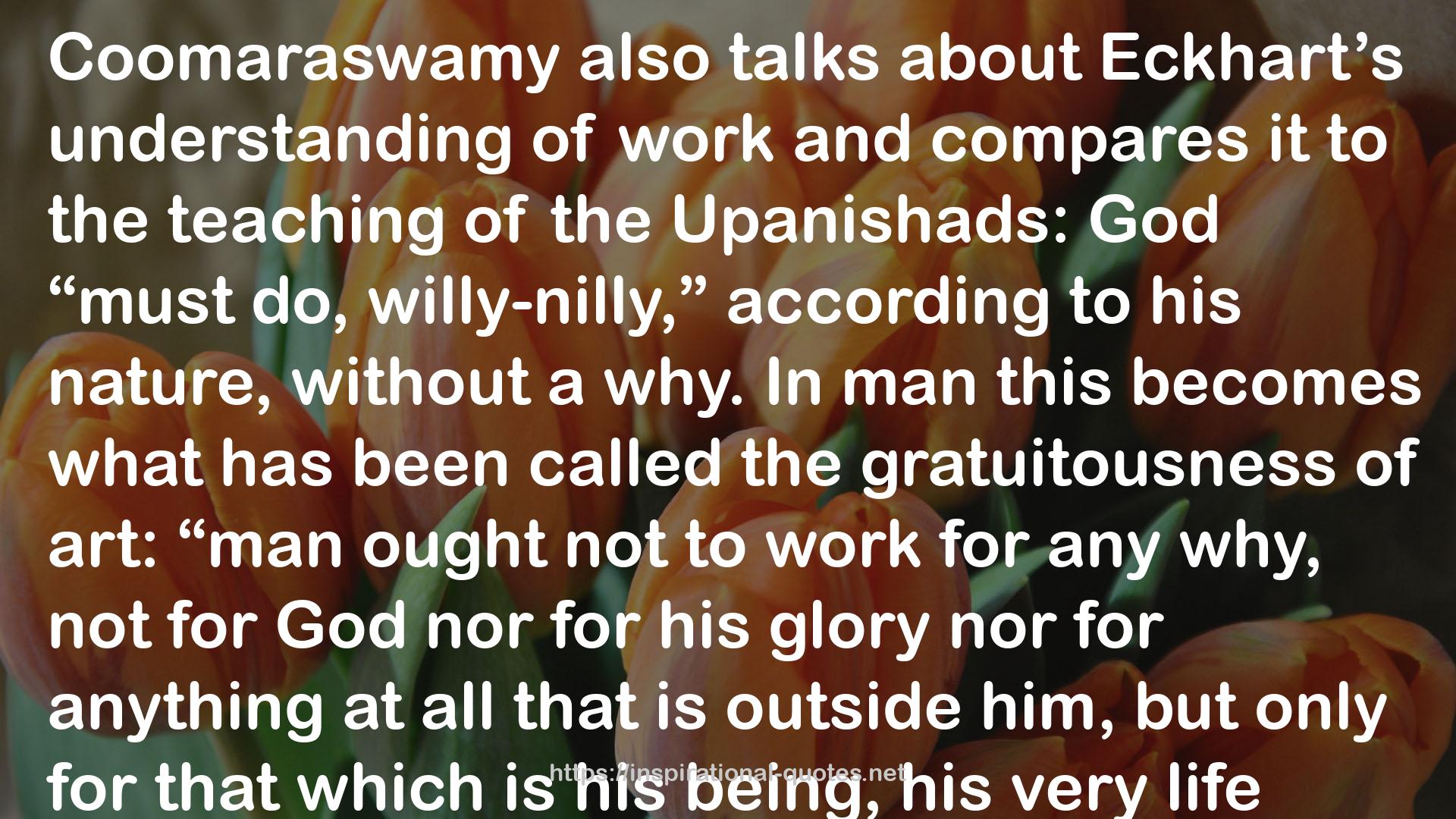" Coomaraswamy also talks about Eckhart’s understanding of work and compares it to the teaching of the Upanishads: God “must do, willy-nilly,” according to his nature, without a why. In man this becomes what has been called the gratuitousness of art: “man ought not to work for any why, not for God nor for his glory nor for anything at all that is outside him, but only for that which is his being, his very life within him” (cf. Brhadaranyaka Upanisad, IV, 5, 6); “have no ulterior purpose in thy work,” “work as though no one existed, no one lived, no one had ever come upon the earth”; “all happiness to those who have listened to this sermon. Had there been no one here I must have preached it to the poor-box.” “I should do my works in such a way that they entered not into my will.…I should do them simply as the will of God,” “Above all lay no claim to anything. Let go thyself, and let God act for thee. "
― Matthew Fox , Meister Eckhart: A Mystic-Warrior for Our Times
